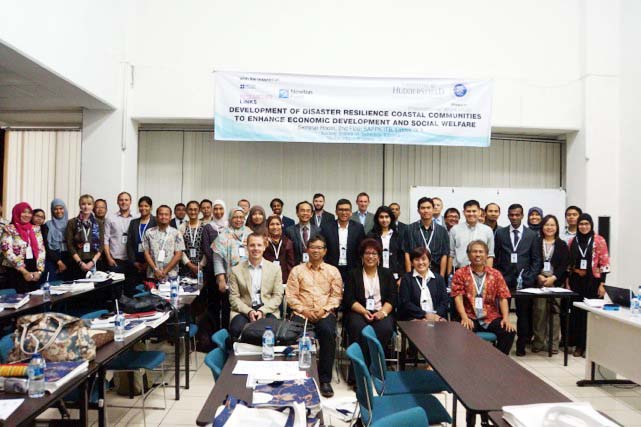The year of 2015 sees the convergence of three global policy frameworks: the Sendai Framework for Disaster Risk Reduction 2015-2030 (March 2015), The Sustainable Development Goals SDGs (September 2015), and Climate Change Agreement COP 21 (December 2015). This represents an opportunity to emphasize the cross cutting themes, including the important of research and education across the different global policy agendas in disaster risk reduction, sustainable development and climate-change mitigation and adaptation, and doing so, to support evidence based decision making. The SFDRR itself includes a strong call for the research and education communities to support the understanding of disaster risk, and to promote risk-informed decisions and risk sensitive planning from the local to the global levels. It also calls for the coordination of existing networks abs scientific research institutions at all levels ad all regions with the goal to strengthen the evidence-base in support of implementation of these policy frameworks.
With long list of experience in disaster and resilience works of both Huddersfield University, UK and Institut Teknologi Bandung, a five day International Workshop on Development of Disaster Resilient Coastal Communities to Enhance Economic Development and Social Welfare have been conducted in PWK – SAPPK ITB under collaboration of British Council Researcher Links, Newton Fund and in association with WG 1 of Indian Ocean Tsunami Warning and Mitigation System. The workshop was being co-coordinated by Prof. Richard Haigh (University of Huddersfield) and Dr. Harkunti P. Rahayu (PWK-ITB) with several contributions from leading researchers, i.e. Prof. Dilanthi Amaratungga (University of Huddersfield), Dr. Idwan Suhardi (former Deputy of Ristek), Dr. Hamzah Latief (Ocean-ITB), Dr. Nimal Wijayaratna (Universityof Moratuwa – Sri Lanka) and Dr Saut A. Sagala (PWK-ITB). There were about 20 academia participants from several universities in UK with minimum 10 years of experience and 25 young academia participants from several universities in Indonesia including ITB. The workshop has been conducted successfully, with many fruitful discussions and sharing of research works emerged during the workshop. On the Day 3, all participants and mentors were on the field trip to visit and having lecture at BMKG warning systems, i.e. Ina TEWS, Ina CEWS and Ina MEWS; as well as visiting the Jakarta flood structural and nonstructural mitigation measures. British Council representative has also monitored the workshop. Outcome of the workshop is a draft Indonesia – UK collaborative research road map for building disaster resilient to enhance economic development and social welfare.




